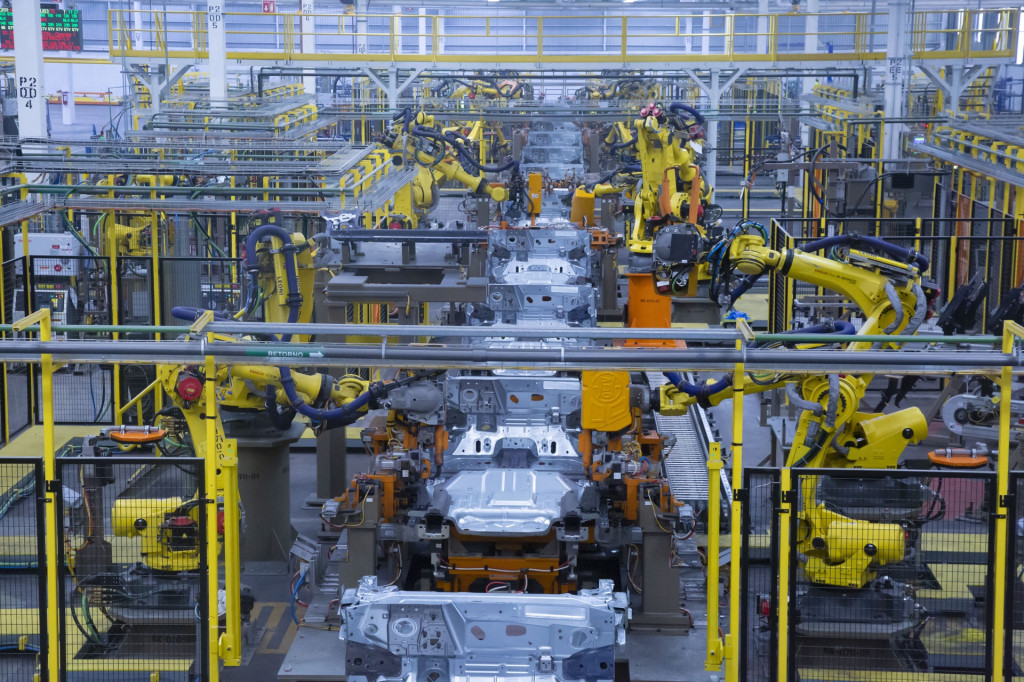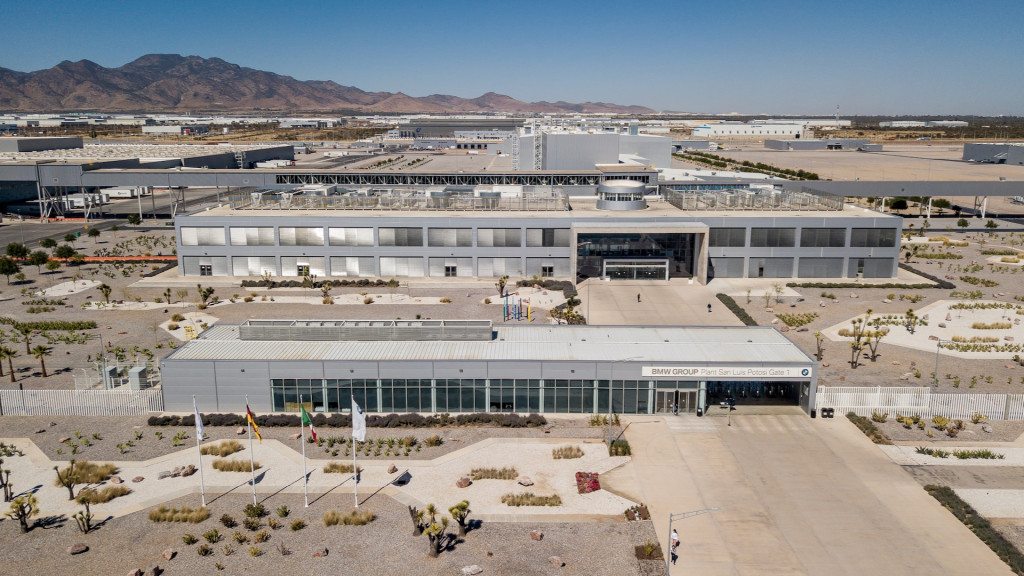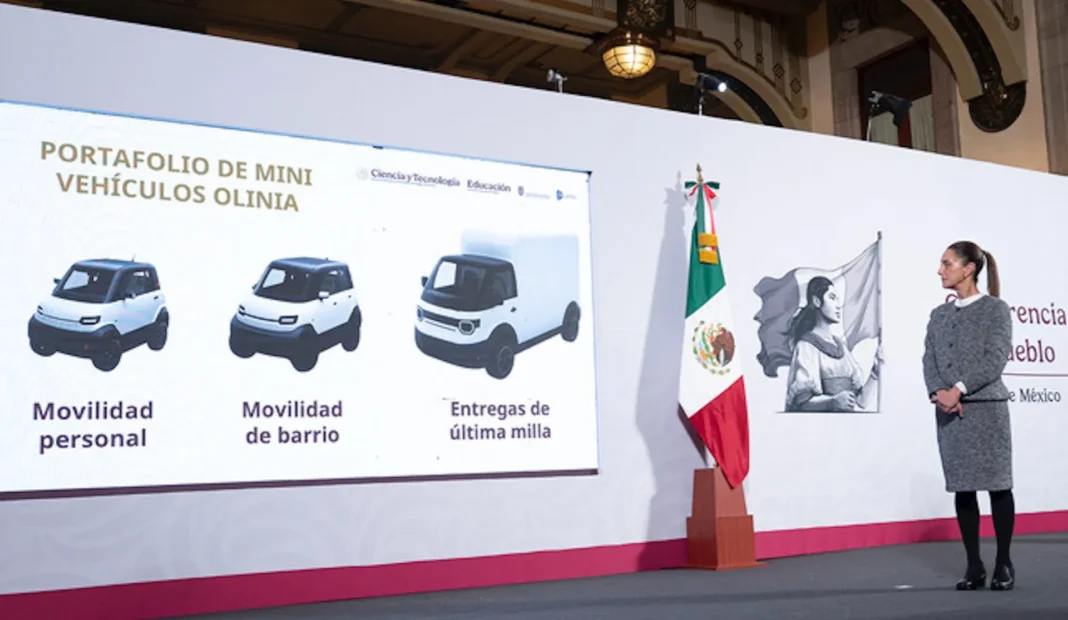As the incoming Trump Administration remains committed to stiff tariffs on Mexican imports, the Mexican government is pushing ahead with its affordable electric-vehicle project.
The project,—called “Olinia,” meaning “movement” in the indigenous Nahuatl language—was announced last October, but President Claudia Sheinbaum provided the first details earlier this month.
As reported by the Financial Times, the goal is an “ultra-compact” electric car—designed and built in Mexico—with a base price between 90,000-150,000 pesos, or approximately $4,400 and $7,300 at current exchange rates.

Ford Mustang Mach-E assembly – Mexico
This will be achieved with smallness and simplicity. According to the Financial Times, officials want the Olinia EV to be rechargeable using a conventional household socket rather than a dedicated charging station—more like an appliance than a car. That approach sidesteps the question of public charging infrastructure, which remains a problem for EV adoption Mexico just as it does in the U.S.
But instead of conventional EVs, its competition might instead be the small motorbikes frequently used for short trips or as taxis in working-class neighborhoods. In that sense, it’s a bit like an electric update of the Tata Nano, the ultra-cheap gasoline car designed for the Indian market as a safer, more comfortable alternative to two-wheeled vehicles.
The Olinia will likely also compete against entry-level EVs from both India and China. One in five vehicles sold in Mexico in 2023 was made in China, according to the Financial Times, reflecting that, while Mexico builds a substantial number of cars, most are exported. This project could produce a Mexico-made EV that more of the country’s citizens could afford, although given the modest budget of 25 million pesos (about $1.2 million), the likelihood of it being made in consequential volumes remains in doubt.

BMW Group Plant San Luis Potosí in Mexico
Meanwhile, President Trump is expected to put into action an aggressive tariff plan discussed during the 2024 presidential campaign. That included the promise of a 100% tariff on Mexico-built cars from Chinese brands—EV or not. He has also pledged to “punish” companies that ship jobs to Mexico or rely heavily on Mexico-based supplier factories. A wide range of analysts and industry experts have projected that such policies would raise new-car prices for U.S. consumers, but without the actual policy here yet it amounts to speculation.
In November, Ward’s Intelligence projected that tariff changes with Mexico would affect nearly 3 million vehicles annually, including some of the most affordable models reaching the U.S. market. With news reports suggesting a 25% tariff is what the administration might impose, Mexico is likely to lose some economic leverage—and need to come up with more of its own plans to support manufacturing.
